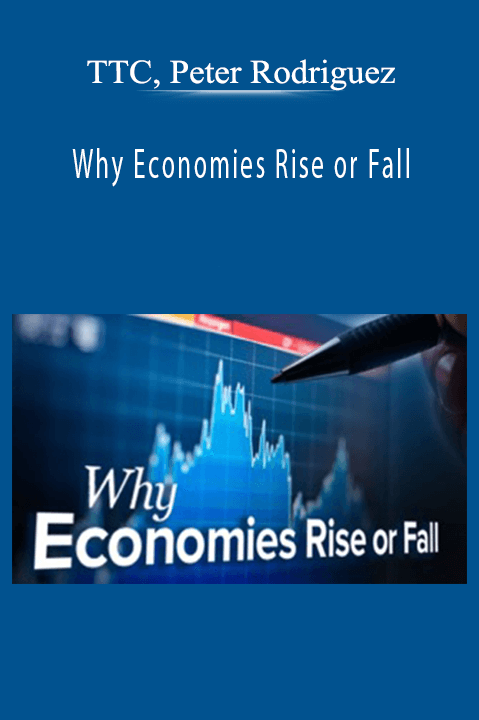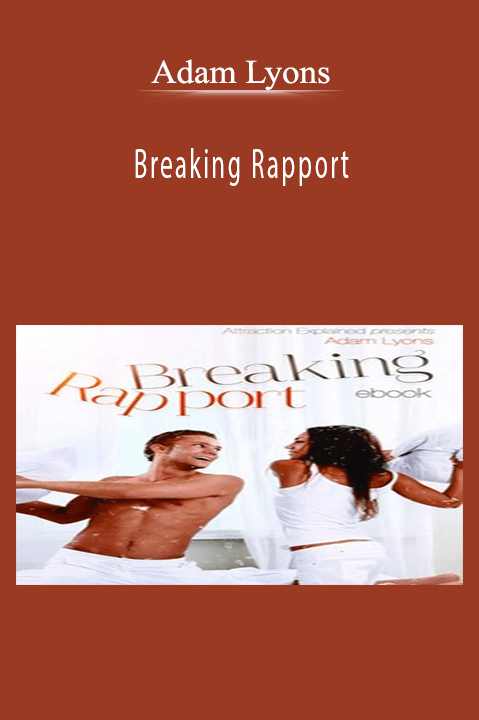TTC, Peter Rodriguez – Why Economies Rise or Fall
Course Overview
How can a nation create the conditions for economic growth and prosperity, improving people’s lives on both the individual and national levels? And what, once these conditions are achieved, can it do to sustain this progress? Do any of the many “isms” under which we organize our economic philosophies hold the answer?
While an insightful understanding of different economic approaches has always been essential for policymakers, it is equally important for those of us who might not steer the economy but must still live and function within it.
Such an understanding is the key to making sense of not only economic events but of “noneconomic” news as well, allowing us to anticipate the economic consequences that can impact both the nation’s economy and one’s personal economy. And, of course, it sharpens the judgment you already bring to your own discussions of the issues.
In the 24 lectures of Why Economies Rise or Fall, Professor Peter Rodriguez of the University of Virginia guides you through a stimulating and, above all, accessible examination of what economists know and don’t know about this elusive search for economic prosperity.
Discover the Truths of Economic Success and Failure
The last 200 years of economic history have offered us a wealth of information useful in probing the question of why economies rise or fall. Much of this information is rooted in several influential theories, developed by such famous thinkers as Adam Smith, Karl Marx, and John Maynard Keynes.
Yet while economic theories are useful, in order to truly understand how economies grow, thrive, and potentially fall, you must also look at how individual countries use and apply these theories. Sometimes they strictly adhere to these theories; sometimes they adapt these theories to their own cultural history; and sometimes they take these theories and branch off into new economic territory.
In Why Economies Rise or Fall, you’ll learn
- how countries as widely different as the United States and Vietnam have grown their economies;
- how countries like China and India were able to recover from economic reverses; and, most important,
- why the critical test of any economic policy is its ability to productively alter human behavior for everyone’s ultimate benefit.
By looking at economic growth as the result of incentivizing such productive behavior—”making productivity more profitable than all the alternatives”—Professor Rodriguez clears up an often-shrouded economic landscape. The result is a course that brings the economic strategies chosen by nations down to street level by adding a newfound clarity to key issues:
- Why economies succeed or fail, what secrets lie beneath the generalized “banner” of a particular ideology, and what might happen when you mix them together
- How economic bubbles are created, why they burst, and how nations recover from them
- The challenges posed by the hyperconnected world economy created by globalization
- The damage that factors like corruption and even the “informal” economy represented by colorful vendors and street bazaars can do to a nation’s prospects for growth
- How everything we know about economic and financial hegemony may change with the rise of China and the deep structural issues facing mature Western economies
Your Chance to Connect the Dots That Link Economics to People
In lecture after lecture, Professor Rodriguez shows you how to connect the economic dots of causes and effects with an approach that joins historical example with contemporary understanding.
To explain the impact of the Industrial Revolution on both growth and people, for example, he begins not in its urban factories but in the fields of rural farmlands, driving home how it was the lesser-hailed Agricultural Revolution that made that more famous revolution possible. By dramatically increasing agricultural productivity, it freed farm workers from their daily struggle for subsistence and made them available for the cities and their factories.
The results, of course, are with us to this day, and Professor Rodriguez examines both sides of the picture history has painted.
He looks at some of the most successful economies in recent history, including those of the United States, China, Japan, and the so-called “Asian Tigers” of South Korea, Hong Kong, Singapore, and Taiwan. He takes an equally penetrating look at economies that have experienced both pronounced successes and failures, including the former Soviet Union, Vietnam, and India. And he also examines those that have struggled mightily but have failed to grow at all, like Nigeria and Venezuela.
In a nutshell, notes Professor Rodriguez, “You’ll see the world and how it operates.”
Just as important, you’ll be viewing that world not through the often-clouded lens of any “ism” or ideology unrelated to real-world human activity but from the perspective of the lives they actually impact.
“What all of these conversations and all of these schools of thought and ideas really intend to teach us is about how to get what we want. They’re about a means to an end … the chance to live a little bit better year by year, getting us to places that have equality for lots of people, or at least something near it; if not equality, then justice and fairness, hope for a better life, for stability.”
To bring those lessons home, Professor Rodriquez brings a wealth of experience, not only from the classroom, where he has been repeatedly honored for his teaching skills, but from the world of business, as well. There, he has focused on international business and economic development, with a special interest in the economic consequences of corruption.
Corruption, in fact, becomes the focus of a fascinating lecture that reveals the key distinction between corruption that is merely pervasive and corruption that is arbitrary, as well as the profoundly different impacts each can have.
In the same way, he opens your eyes to the often-ignored consequences of the “informal economy” represented by open-air markets, unlicensed street vendors, and casual storefronts. Rather than being mere examples of local color, they can, in fact, be indicators of troubling factors in an economy. And they can exert a profound drain on productivity and growth.
Your exposure to this ground-level view of how economies really function when the “isms” and ideology are peeled away prepares you for a more nuanced understanding of the factors we see everyday in the economic world.
By course’s end, you’ll understand as never before both the benefits granted and the costs extracted by the “instant economy” that technology and globalization have brought us. You’ll grasp what China’s expected economic dominance may soon mean. And you’ll have a new appreciation of the juggling act policymakers perform as they fashion each new “experiment,” trying to heed history’s latest lesson in balancing the roles of the state, the market, and the individual in achieving national growth and maximum human happiness.
Course Lecture Titles
1. From Free Markets to State Economies
2. A Brief History of Economic Growth
3. Economic Growth and Human Behavior
4. The Birth of the Western Free Market
5. American Economic Strategies
6. America and Europe—Divergent Approaches
7. State-Led Theories of Economic Growth
8. The Secrets of Rapid Growth in Tiger Economies
9. Lessons and Limits of Japan’s Economic Model
10. From Closed to Open Economies
11. How Can We Manage Global Growth?
12. China’s Policies and the World Economy
13. Merging the Theories of East and West
14. Lessons about Economic Success
15. The Roots of Economic Failure
16. Politics, Statecraft, and the Fate of Economies
17. Corruption and Its Impact on Growth
18. Informal, Inefficient Markets
19. Technology and the Instant Economy
20. Possible Strains on Global Economic Growth
21. Latin America—Moving Away from Free Markets
22. Financial Crises and Economic Theory
23. The Multipolar Economic World
24. Driving Forces, Emerging Trends
Digital Download TTC, Peter Rodriguez – Why Economies Rise or Fall at Offimc.click Now!
Delivery Information
- Upon ordering the product, a delivery email with download instructions will be sent immediately to you so that you may download your files. If you log in (or create an account) prior to purchase you will also be able to access your downloads from your account dashboard.
- It is a digital download, so please download the order items and save them to your hard drive. In case the link is broken for any reason, please contact us and we will resend the new download link to you.
- If you don't receive the download link, please don’t worry about that. We will update and notify you as soon as possible from 8:00 AM – 8:00 PM (UTC+8).
- Please Contact Us if there are any further questions or concerns you may have. We are always happy to assist!








8 reviews for Why Economies Rise or Fall – TTC, Peter Rodriguez
There are no reviews yet.